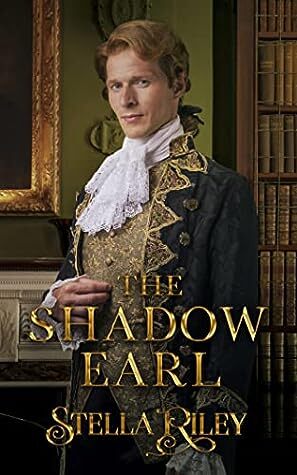 This isn’t a bad book. In fact, I read it swiftly, without the slightest urge to hurl my Kindle at the wall, and on the whole I enjoyed it. So why the 3* rating? I’ll come to that.
This isn’t a bad book. In fact, I read it swiftly, without the slightest urge to hurl my Kindle at the wall, and on the whole I enjoyed it. So why the 3* rating? I’ll come to that.
Here’s the premise: Christopher (Kit),the Earl of Hazelmere, has fallen in love with Sophia Kelsall, but they’re deemed too young to marry. He’s told to go off and take his Grand Tour. A couple of years abroad will broaden his mind, and if they’re both of the same mind when he returns, they can marry then. So Kit takes off with his cousin Basil, but after two years they part company, Basil back to England and Kit, still wanting to explore, to Constantinople. And then… nothing. For three years, nothing is heard of Kit. Basil and his father take over Kit’s London house, and help themselves to his fortune. Sophia is left in limbo, not properly betrothed, but not fully free, either. Her father is very ill and likely to die soon, her mother is pressing her to marry at once, and Basil is very keen to lead her up the aisle. What’s a girl to do? But then, just when she’s given up all hope, Kit returns. But he’s changed, not at all the man she fell in love with.
The two themes of the book are now clear. On the one hand, there’s Kit and Sophia and the question of whether they’ll get back together, or rather (since it’s blindingly obvious that they will) how that will be accomplished and whether the author can spin things out for the full length of the book (happily, the answer is no).
The other matter is what happened to Kit, where he’s been, why he neither returned nor wrote, and how it all came about. This isn’t quite as blindingly obvious, but we find out pretty quickly how it happened and who the villain is, even if we only gradually learn all that happened during those three years. And so the only real question is how Kit will arrange things so that the villain can’t threaten him ever again.
This all sounds like fairly normal fare for a book set in the pre-Regency Georgian era, and so it is. And Stella Riley is a terrific writer. I regard The Parfit Knight, the first book of the Rockliffe series, as one of very few perfect books. So what went wrong here?
Problem number one is something I’ve grumbled about in previous Riley books, and abandoned the Rockliffe series because of it, and that’s the sheer weight of characters from earlier books. I don’t mind one or two of these, or any number, actually, if they’re treated as new characters so that I can keep up, but hurling names around as if I’m supposed to remember them from however many years ago, when I first read about them, is insane. And in fact, there are several earlier books I haven’t read, including a whole series. Since this book is supposed to be the first of a new series, would it be asking too much to make it readable for those of us who are not intimately familiar with the whole crew from the past?
There’s an exchange between two characters that goes something like this (paraphrasing):
A: We’ll have to bring X in on this.
B: Why? How can he help us?
A: You don’t want to know.
No, actually, I DO want to know, because it might help me remember who the hell X is.
Problem number two is that all these people, the ones from this book, and the vast numbers from previous books, are all uniformly good-looking, intelligent, talented, loyal to a fault and filled with steely determination to right wrongs and generally be heroes. Well, apart from the various villains, small and large, who have no redeeming features whatsoever. Perfection and cartoon wickedness don’t make absorbing reading. I like my heroes (and heroines) to be real people with faults and quirks and… oh, I don’t know, personalities, maybe? And I’d like the villains to be less unrelievedly awful.
The third problem is that nothing very terrible happens during the whole course of the book. Kit and Sophia have problems, they work them out. Sophia’s sister is deaf, Kit has a plan to help her, it works perfectly. The army of Kit’s loyal friends devise a plan to trap the big villain and it all works exactly as planned. There are no misunderstandings, no unexpected twists, no last-minute threat from the villain. Sorry but that’s just not interesting. There’s no tension in it. The book can be beautifully written (and it is) but without some unexpected happenings, it’s just dull.
I’m sorry to be so negative, but it’s just because I’m so disappointed. The Parfit Knight was so wonderful, and the next two in the series were great, too, so it makes me very sad to write a review like this. I found very little to quibble over, historically, only the big wedding thing. What is this fetish with big weddings? No one cared about big weddings then! Or choosing a picturesque church. Or having a ‘wedding dress’. Or betrothal rings. Or a bachelor party. Or kissing in the street! Or speeches and toasts at the wedding breakfast. The marriage service just wasn’t a big deal. Otherwise, nothing tripped me up. There is some sex in the book, but it’s the usual stuff (he’s brilliant at it, she’s instantly orgasmic, you know how it goes). But that’s OK. I’m not keen on too much realism in the bedroom scenes. And the funny thing is, even with all my grumbles, I read the thing over two days, and enjoyed it, on the whole. But still… three stars.
 newest »
newest »
 newest »
newest »
 Kathleen wrote: "I have basically the same problem with many, many Georgian/Regency novels. I can ignore the mandatory, repetitive explicit sex but the inaccurate details infuriate me.
Kathleen wrote: "I have basically the same problem with many, many Georgian/Regency novels. I can ignore the mandatory, repetitive explicit sex but the inaccurate details infuriate me. 
 This isn’t a bad book. In fact, I read it swiftly, without the slightest urge to hurl my Kindle at the wall, and on the whole I enjoyed it. So why the 3* rating? I’ll come to that.
This isn’t a bad book. In fact, I read it swiftly, without the slightest urge to hurl my Kindle at the wall, and on the whole I enjoyed it. So why the 3* rating? I’ll come to that.


The one that recurs over and over is the tea table laden with scones, little frosted cakes, layer cakes and chocolates. No. Just...no. That kind of formal tea did not exist before the 1840s, and no one made the kind of scones we're familiar with until the late 19th century. They're made with baking powder/baking soda which wasn't invented until the 1840s and even then, the earliest mention I've found in cookbooks was 1899 (though I have not looked at every cookbook published between the 1840s and that date.
Also, English gentlemen were not drinking bourbon in London or anywhere else in Great Britain. Apparently some authors feel that for novelty they must deprive their characters of brandy. But whiskey of any sort did not gain traction in England until the 1880s. Earlier, they drank Irish or Scotch if they were in Ireland or Scotland and couldn't get brandy.
Sorry for the rant but it's so easy to check what people actually ate.